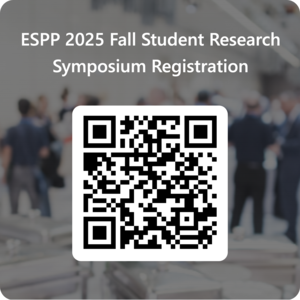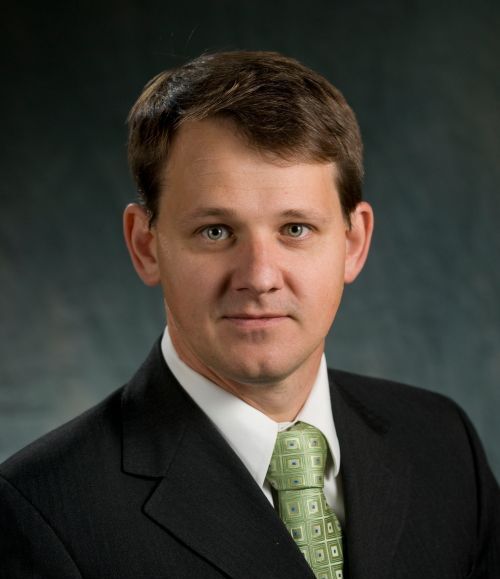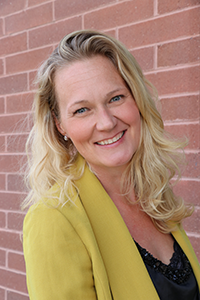ESPP 2025 Fall Student Research Symposium
Fri, October 24, 2025 8:00 AM - Fri, October 24, 2025 2:00 PM at Kellogg Hotel and Conference Center
Environmental Science and Policy Program (ESPP) 2025 Fall Student Research Symposium will be held on Friday, October 24, 2025, from 8:00 AM to 2:00 PM in the Lincoln Room at the Kellogg Hotel and Conference Center.
This year's theme is "Bridging Science and Society: Environmental Solutions for a Changing World".
Join us for an innovative symposium showcasing cutting-edge environmental research that transforms scientific insights into actionable solutions. This year's program emphasizes collaborative approaches to addressing complex environmental challenges through integrated policy development and practical implementation strategies.
Engage with groundbreaking research spanning climate adaptation, sustainable policy development, environmental justice, and interdisciplinary solutions. Symposium achieves three core goals: bridge scientific research with real-world policy applications, develop innovative environmental solutions for emerging challenges, and build adaptive research networks that respond effectively to our changing world.
The abstract submission deadline (September 24, 2025) has passed.
Registration
Breakfast and lunch will be provided to attendees. Please register by October 20, 2025 to help us with a better head count. Please use the link (https://forms.office.com/r/VjP0cxCgxM) or scan the QR code below.

Symposium Schedule
|
Time |
Activities |
| 8:00 - 8:45 AM | Registration and breakfast (Lincoln Room) |
| 8:45 - 9:00 AM | Opening Remarks |
| 9:00 - 9:50 AM |
Keynote Talk: Dr. Rafael Auras, School of Packaging, MSU Title: Packaging Design for End-of-Life Focusing on Biodegradability and Compostability |
| 9:50 - 10:00 AM | Group photo and coffee break (Lincoln Room) |
| 10:00 - 11:50 AM |
Concurrent Oral Sessions
|
| 11:50 - 12:00 PM | Break |
| 12:00 - 1:20 PM | Poster Session (Lincoln Room) |
| 12:00 PM | Lunch (Lincoln Room) |
| 12:30 - 1:30 PM |
Keynote Talk*: Dr. Andrea Vander Woude, NOAA Great Lakes Environmental Research Laboratory Or Lightning talks by poster presentors, 2 min each. |
| 1:50 - 2:00 PM | Closing Ceremony (Lincoln Room) |
*Dr. Andrea Vander Woude works at NOAA Great Lakes Environmental Research Laboratory, which is part of the federal goverment. If the current government shutdown continues to the day of the symposium, Dr. Woude will not be able to travel and present at the symposium. Our backup plan is to have poster presenters give a 2-m lightning talk to introduce their posters at the begining of the poster session.
Welcome and Opening Remarks
Keynote Speakers

Dr. Auras is Professor and the Amcor Endowed Chair in Packaging Sustainability at the School of Packaging at Michigan State University. He leads a research group of graduate and undergraduate students, postdoctoral fellows, and visiting scholars interested in developing novel biobased and biodegradable polymers, tailoring polymer biodegradability, and designing sustainable packaging systems.
Title: Packaging Design for End-of-Life Focusing on Biodegradability and Compostability
Abstract
As global plastic production and consumption continue to rise, managing the resulting waste has become a growing environmental challenge. A significant portion of this waste is still incinerated, landfilled, or released into the environment, underscoring the need for sustainable material alternatives and improved end-of-life solutions. This presentation examines the potential of biobased and compostable polymers, particularly poly(lactic acid) (PLA), the most widely used commercial biobased polymer, in addressing this issue. Drawing on recent research from our group, we will examine how material design, environmental conditions, and process optimization impact polymer biodegradation under industrial and mesophilic composting conditions. The presentation will also discuss strategies such as reactive blending, biostimulation, bioaugmentation, and enzymatic pretreatment to accelerate polymer breakdown. Ultimately, this talk bridges material and packaging science, composting technology, and sustainability goals to demonstrate how thoughtful packaging design can advance circularity by ensuring effective biodegradability and compostability at the end of life.

Dr. Andrea Vander Woude, NOAA Great Lakes Environmental Research Laboratory
Dr. Andrea Vander Woude, is a satellite oceanographer, data scientist, and geologist. She has been using remote sensing for over 20 years and specifically hyperspectral imagery for more than 5 years to understand ecological and physical processes in the Great Lakes and the coastal and Southern Ocean.
Oral Sessions
Requirements
- Each oral presentation should be kept strictly within 15 minutes, including 12 minutes talk and 3 minutes for Q&A.
- Session chairs will reminder the speakers when they approach the 12-min mark.
Oral Session #1 (Lincoln Room, Session Chair: TBD)
| Time | Presenter | Title |
| 10:00 AM | Zhouyuan Wang | SARS-CoV-2 Detection in the Air of University Lecture Rooms Using Heating, Ventilation, and Air Conditioning Filters |
| 10:15 AM | Sehwan Cheon | Fiber-Based Packaging: A Sustainable Alternative to Plastic in the Fruit Industry |
| 10:30 AM | Henry Gonzalez | Two-stage woodchip bioreactors remove agrochemicals from recycled irrigation water |
| 10:45 AM | Jincheng Hunag | The Impacts of the COVID-19 Pandemic on Global Land Use Change and Biodiversity |
| 11:00 AM | Miyeon Kim | When Do Changing Norms Persuade? An Experimental Test of Dynamic Norms, Financial Benefits, and Individual Differences |
| 11:15 AM | Iris Margetis | The Effects of a Mandatory Flood Risk Disclosure Law on Rent Prices and Residential Sorting in Texas |
| 11:30 AM | Latifa Salangi | Building Community Trust in Public Health Institutions |
Oral Session #2 (Room 103A, Session Chair: TBD)
| Time | Presenter | Title |
| 10:00 AM | Leo Baldiga | Visions of Progress and Precarious Realities: The Politics of Cambodia’s Funan Techo Canal |
| 10:15 AM | Ahmed Elkouk | Projections of streamflow and water availability in the southwestern U.S. |
| 10:30 AM | Jaewon Han | Finding green solvents for PET chemical recycling back to PPD monomer in the life cycle assessment framework |
| 10:45 AM | Jae-Yu Jung | Do EV Charging Stations Care about Electricity Rates? |
| 11:00 AM | Xin Lan | Beyond the Surface: Improving Subsurface Lake Temperature Prediction via Simulation-Based Pre-training and Adaptive Ensembling |
| 11:15 AM | Johnny Musumbu | Localizing Sustainable Development at Natural World Heritage Sites in Africa: A Case Study of Lake Malawi National Park World Heritage in the Republic of Malawi Heritage. |
| 11:30 AM | Aman Shreshta | Bridging Models and Practice: Agricultural Water Use in the Mississippi River Basin |
Oral Session #3 (Room 103B, Session Chair: TBD)
| Time | Presenter | Title |
| 10:00 AM | Qingyuan Cao | Carrot Metallome Is Primarily Controlled By Growth Stage Rather Than Soil Water Conditions |
| 10:15 AM | Alexandra Benitez Gonzalez | Evaluating Risk Communication Strategies for Harmful Algal Blooms in Vulnerable Populations |
| 10:30 AM | Andrew Huang | Enhanced Sorption of Per- and Polyfluoroalkyl substances (PFAS) by Cation Bridging Interaction in Homoionic Soils |
| 10:45 AM | Yoon H. Kim | A Formative Evaluation of Water Conservation Behaviors Among College Students |
| 11:00 AM | Ye-Rim Lee | Wildfire and Hurricane Disruptions: Evidence on Short-Term Gasoline Price Dynamics |
| 11:15 AM | Jeremy Rapp | Pipe Dreams: Mapping Irrigation Technologies and Consumptive Use Across Scales |
| 11:30 AM | Tasha Siame | A Protocol for Studying Disparities in Park Access and Use in Flint, Michigan |
Poster Session
Requirements
- All posters should be in portrait mode with a maximum dimension of 72 in (H) x 48 in (W). A typical poster can be 54 in x 42 in.
- The poster session will be in the Lincoln Room. Hang your posters on the designated spot on the poster board with push pins before the poster session starts at 12 PM. We strongly encourage you to put up your posters during registration and breakfast.
- As a backup plan in case that our invited speaker cannot attend the symposium due to the government shutdown, poster presenters are asked to prepare a 2-min lightning talk to introduce their posters to the audience during the poster session. You may want to prepare 1 or 2 slides to highlight your work!
- Please stand by your poster during the poster session to talk about your work with viewers.
- After the symposium, make sure you take down your poster.
| Poster # | Presenter | Title |
| #1 | Saugat Aryal | Unprecedented Hydrological Transformation of the Asian Water Tower |
| #2 | Caroline Baidoon | Tumorigenic potential of triclosan, a household antimicrobial ingredient, and chemoprevention by resveratrol and quebecol. |
| #3 | Julia Belden | VISIBILIZING ENVIRONMENTAL COMMUNICATION AT THE MARGINS: A BIBLIOMETRIC ANALYSIS OF LATIN AMERICAN SCHOLARSHIP |
| #4 | Maria Guzman | Deep-Sea Nanowires for Recovery of Strategic Metals |
| #5 | Rachel Isbey | Shocks to Aviation and Recovery - Evidence from the US |
| #6 | Gustavo De la Cruz Montalvo | Record 2022–2024 Hydrological Drought, Long-Term Trends (1981–2024), and Water-Storage Losses |
| #7 | Sanjita Pulgam | Connecting US Air Freight to International Trade |
| #8 | Mohammad uzair Rahil | Integrated Hydrology-Crop Modeling in the Lower Michigan Using the Community Land Model (CLM) |
| #9 | Angelique Willis | Ethno-racial and Class Dimensions of Drinking Water Contamination in the Detroit, Michigan Region |
| #10 | Dian Xu | Effect of Concentration and Temperature-dependent Poly(lactic acid) Crystallization on the Migration of Alcohol–Water Mixtures |
| #11 | Tanjila Akhter | Assessing Irrigation and Pumping-Induced Hydrologic Impacts in South Asia Using CLM5 |
| #12 | Xiang Yu | Impacts of losses in Ukraine’s grain production on global trade due to the Russia-Ukraine war |
| #13 | Jonathan Vivas | Dynamics of Human Well-Being in U.S. Cow–Calf Systems |
Faculty Judges
- Dr. Geoffrey Henebry (Geography, Environment, and Spatial Sciences)
Our Sponsors
The Student Research Symposium is proudly sponsored by:
- Environmental Science and Policy Program
- College of Social Science
- College of Natural Science
- Fate of the Earth Endowment
Organizing Committee
Sarah Buelow (School of Packaging)
Nudrat Fatima (Earth and Environmental Science)
Yousef Khajavigodellou (Geography, Environment, and Spatial Sciences)
Tasha Siame (Forestry)
Dr. Joseph Hamm
Ms. Tina Bird
Dr. Lifeng Luo
Event Parking
Parking is available at LOT(S) 66/Ramp 4. Those in attendance can click on the link below or scan the QR code and register their vehicles. Guests will no longer need to visit the pay machines. This is all done online. We encourage guests to register their vehicles prior to the event but can be done the day of the event immediately upon arrival. Changes can be made to their registration any time up until the day of the event, by contacting Parking Services, 517-355-8440.

